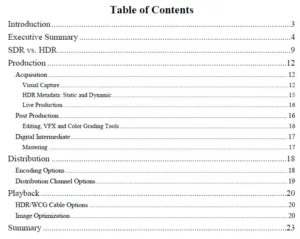Insight Media has completed a new white paper titled, “Understanding Trade-offs in Microdisplay and Direct-View VR Headset Designs.” It is now available for free download. REGISTER HERE
Most current VR headset designs feature direct-view displays resulting in headsets that many feel do not meet the size, weight, comfort, cost or visual performance that will get end users excited about buying a VR solution. But new microdisplay-based panels and optical solutions are now emerging that can offer significant improvements in the above areas.
In this white paper, we explore the many design trade-offs associated with VR headset design, but focus primarily on the optical design. Key findings of the report include:
- VR headset design consists of dozens of design trade-offs with interplay between optical and electronic elements and their impact on size, weight, ergonomics, cost and performance
- For a given panel resolution, increasing the field of view increases the likelihood of seeing more and more unwanted artifacts.
- All VR headsets today do not have adequate image fidelity. Increasing panel resolution is therefore a key industry need. New 2Kx2K OLED microdisplays are now available.
- OLED displays offer the best performance right now in terms of contrast, response time and color – either direct view or microdisplay type panels
- OLED microdisplays seem better suited to allow higher resolutions for film-like smoothness and artifact-free wide field-of-view VR headsets
- New, compact optical designs for the OLED microdisplays are helping to reduce size and weight and improve ergonomics
- Mobile VR is likely to drive the market in the future – not PC-tethered designs
- Two new types of VR architecture are emerging: smartphone-tethered and all-in-one designs. OLED microdisplays seem best suited to meet these design needs
The Table of Contents for the full report is shown below.

